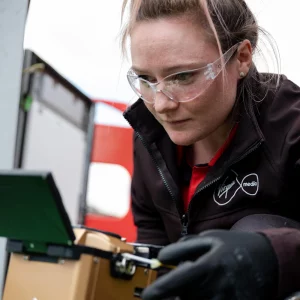Sponsored Links
Broadband ISP Migration Problems Still Impact Half of UK Switchers
Posted: 31st Aug, 2010 By: MarkJ
 The latest consumer study from Which? UK, a popular consumer magazine, found that nearly half of those it surveyed (10,000 people) had suffered problems when trying to change broadband provider. Issues such as on-going billing after cancellation, difficulties with establishing the new ISP connection and downtime (more than a few hours without internet access) came top of the gripes.
The latest consumer study from Which? UK, a popular consumer magazine, found that nearly half of those it surveyed (10,000 people) had suffered problems when trying to change broadband provider. Issues such as on-going billing after cancellation, difficulties with establishing the new ISP connection and downtime (more than a few hours without internet access) came top of the gripes.However 78% of those who swapped ISP recently claimed that the experience itself was easy. Despite that, 13% still found changing ISP "difficult", which has increased from 8% in August last year.
Most of those involved in the survey had been with their current ISP for longer than 12 months, with 65% of those claiming to have used their provider for over 3 years! Just 1 in 6 planned to switch when their current contract expires.
Which?'s Ceri Stanaway said:
"It's reassuring that most people find switching broadband provider easy. Changing your broadband deal can save you money and get you a better service, so if you're not happy with your current broadband provider, vote with your mouse.
But the broadband world is getting ever more complex, particularly as providers increasingly bundle broadband together with other services such as phone and TV. We'd like to see providers do all they can to make the broadband switch easy for customers and halt the upward trend of people who find it difficult."
"It's reassuring that most people find switching broadband provider easy. Changing your broadband deal can save you money and get you a better service, so if you're not happy with your current broadband provider, vote with your mouse.
But the broadband world is getting ever more complex, particularly as providers increasingly bundle broadband together with other services such as phone and TV. We'd like to see providers do all they can to make the broadband switch easy for customers and halt the upward trend of people who find it difficult."
Ofcom’s General Condition 22 (GC22) rule mandates that all UK broadband ISPs must supply a Migration Authorisation Code (MAC) within 5 working days of request and free of charge. This means that customers cannot be held to ransom (prevented from leaving) by their ISP for any reason.
Sadly the MAC system tends to only apply properly to BT's telephone line system and that of shared unbundled ( SMPF LLU ) lines, where the ISP takes over your broadband but BT still retains control of the line itself. Broadband customers on fully unbundled lines ( MPF LLU ) can run into problems unless they switch back to BT first.
The situation is complicated by the fact that some ISPs use a mix of BT-based, shared LLU and fully LLU platforms and most don't specify which you will be connected to. The MAC system also does not apply to broadband satellite, fixed wireless, Mobile Broadband or cable providers ( Virgin Media ) because they run off physically different infrastructure.
Search ISP News
Search ISP Listings
Search ISP Reviews
Latest UK ISP News








Cheap BIG ISPs for 100Mbps+
150,000+ Customers | View More ISPs
Cheapest ISPs for 100Mbps+
Modest Availability | View More ISPs
Latest UK ISP News
Helpful ISP Guides and Tips
Sponsored Links
The Top 15 Category Tags
- FTTP (6802)
- BT (3881)
- Politics (3075)
- Business (2767)
- Openreach (2663)
- Building Digital UK (2512)
- Mobile Broadband (2475)
- FTTC (2142)
- Statistics (2128)
- 4G (2092)
- Virgin Media (2025)
- Ofcom Regulation (1779)
- 5G (1732)
- Fibre Optic (1604)
- Wireless Internet (1595)
Sponsored
Copyright © 1999 to Present - ISPreview.co.uk - All Rights Reserved - Terms , Privacy and Cookie Policy , Links , Website Rules






























